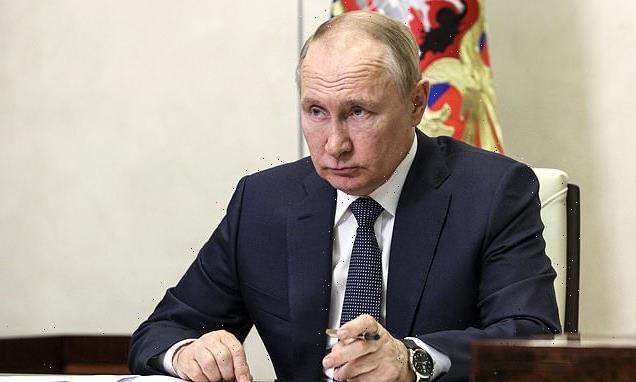Roman Polanski’s lawyer indicated Monday that he will renew his request to have the fugitive director sentenced in absentia, a day after a transcript was unsealed that revives misconduct allegations in the director’s 45-year-old rape case.
But the path to resolving the case is not at all straightforward. Harland Braun, Polanski’s lawyer, said in an interview that he first wants to get a new judge to handle it. Braun stated that the current judge, Sam Ohta, cannot be trusted to deal with it fairly, noting that Ohta had initially refused to release the transcript, which the defense has sought to unseal for 12 years.
“Ohta is worthless,” Braun said in an interview. “Ohta is all screwed up. I don’t trust any judge in L.A. to listen to this.”
Braun said he first wants to go to Judge Eric C. Taylor, the presiding judge for Los Angeles County, and ultimately wants the case transferred to another county. He also argued that under COVID rules, Polanski should be allowed to appear via Zoom from France, instead of returning to the U.S.
Polanski has been a fugitive since fleeing the country in 1978, just before he was to be sentenced for having unlawful sexual intercourse with a 13-year-old girl. Polanski’s lawyers have long maintained that he was the victim of misconduct by Judge Laurence Rittenband, whom they have accused of reneging on a deal to sentence him to no more than a brief prison stay for a psychiatric evaluation.
The latest twist in the case came last Wednesday, when an appeals court granted a request from two journalists — Sam Wasson and William Rempel — to unseal the transcript of a conditional examination of Roger Gunson, the deputy district attorney who handled the case in 1977.
Gunson had participated in “Roman Polanski: Wanted and Desired,” the 2008 documentary that delved deeply into these allegations. In 2010, he was examined under oath by Polanski’s lawyers as they sought to have the case dismissed. The examination was intended largely to get Gunson’s account from the documentary under oath, so much of it simply repeats what has been public knowledge for 14 years.
Polanski pleaded guilty to a single count in 1977 and was ordered to Chino state prison for a 90-day psychiatric evaluation prior to sentencing.
In his testimony, Gunson said that after Polanski completed the psychiatric exam in just 42 days, Rittenband reneged on his promise to sentence him to no additional time. Instead, Rittenband said he would send Polanski to state prison and then have him “recalled” once he had served another 48 days. Gunson said the judge also reneged on an agreement to allow Polanski enough time to finish a movie he was working on.
“It was obvious that the judge had promised him on two occasions something that he reneged on,” Gunson testified. “So understanding that scenario, I can understand why Mr. Polanski did not take the chance of going to state prison and not being recalled.”
Gunson also said that he had drafted an affidavit in 1977 in which he laid out reasons to have Rittenband removed from the case. He testified that Rittenband habitually had improper ex parte communications about his cases. He also said he believed that Rittenband was influenced by media coverage of the case.
Gunson noted that prosecutors also behaved inappropriately due to the high-profile nature of the case. The rape occurred at Jack Nicholson’s house and some prosecutors went along when investigators served a search warrant there. In the examination, Gunson was shown a picture of two prosecutors standing in Nicholson’s library, holding his Oscar statuette. (He had won his first best actor award for “One Flew Over the Cuckoo’s Nest” two years earlier.) Gunson commented that the photo was “obviously inappropriate.”
The Los Angeles County District Attorney’s office has long taken the position that Polanski must first return to the U.S. before the case can be settled. But George Gascón, who was elected in 2020, has suggested he might be more flexible about that. Last week, Gascón reversed his opposition to releasing the Gunson transcript, noting that the victim in the case, Samantha Geimer, has asked for it to be public in the interests of “closure.”
Tiffiny Blacknell, a special adviser to Gascón, also said last week that the office would reexamine the case with “fresh eyes” once they had an opportunity to read the transcript.
“Many people are suspicious that something untoward occurred,” she told Variety. “We share that curiosity and that concern.”
Steve Cooley, who served as D.A. from 2000 to 2012, blasted Gascón in an interview on Friday, saying it appeared that he had already decided to settle the case in Polanski’s favor.
“Why should he get to be sentenced in absentia?” Cooley said. “Because he’s an Academy Award winner? Because he’s a great director? There’s no exception in the penal code for that. Show up like everybody else.”
In a statement on Monday, the D.A.’s office said it has not altered its position and that Polanski should turn himself in.
“We are still evaluating the contents of the transcript and have not made a final decision on any defense request, since no motion has been recently filed,” the office said. “We have long maintained that Mr. Polanski should surrender himself to the Los Angeles Superior Court. Any suggestion to the contrary is false.”
Polanski’s lawyers have made repeated efforts to reach an agreement whereby Polanski could return to the U.S. without running the risk of being sentenced to additional custody time. Most recently, in 2017, Judge Scott Gordon denied Braun’s motion for dismissal and a motion to have Polanski sentenced in absentia.
Michele Hanisee, the prosecutor who has appeared in court to oppose those requests, declined to comment on the case on Monday.
“This is still an open case,” she said. “I can’t ethically comment on an open case.”
Source: Read Full Article


